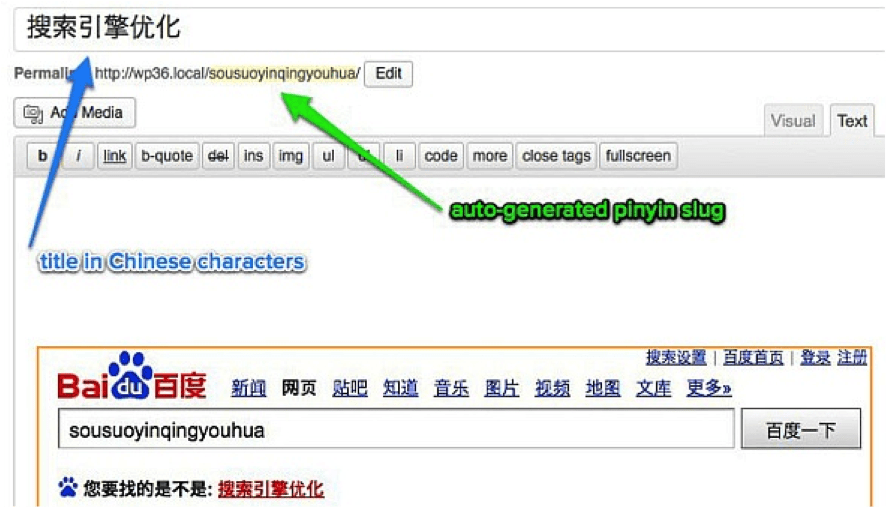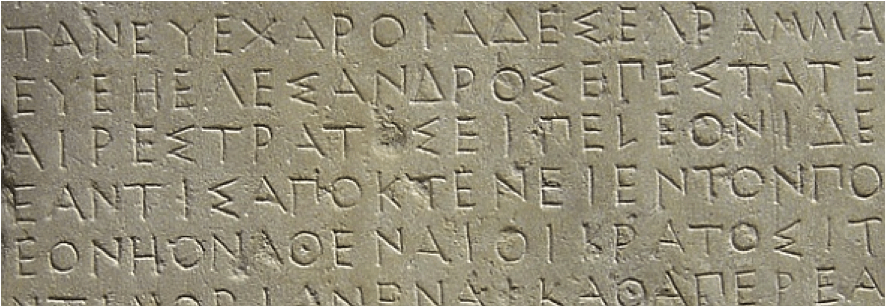The most commonly used language for WordPress blogs is, of course, English, which is based on the classical Latin alphabet. There are, however, plenty of other languages that use different alphabetic systems, such as the Cyrillic for some Slavic languages and the Greek script for Greek. This can cause problems with your blog post URLs (slugs) if the user’s computer doesn’t recognize other alphabetical systems than Latin. This in turn makes visitors much less likely to share your content and click your links.
The obvious solution is to romanize the characters by hand. Doing it that way takes time and isn’t always 100% correct. WordPress developers have given a lot of thought to solving this problem and offer numerous transliteration plugins for the popular blogging platform. These plugins create human-readable and short URLs, offering a fix for the complete chaos in your blog’s address box. They show a short & simple URL that contains the title of your post. Very important for international projects.
Here are a few, mostly for western languages:
1) Transliterado
Transliterado is a bit outdated but a very effective & simple plugin—both installing and using it is a breeze. It’s a one-size-fits-all solution for all practical purposes, but it does a good job of it: in addition to transliterating your URLs, including existing ones, Transliterado transliterates tags and categories if you choose to. It covers many non-Latin alphabets or Latin ones with special characters in them (Norwegian, German, Swedish).
Languages covered: Russian, German, Scandinavian Languages, Bulgarian, Esperanto.
2) SO Pinyin Slugs
Mandarin Chinese permalinks in WordPress come out notoriously bad, and even dedicated search engines like Baidu can’t always turn them into something readable. The solution is transliterating each post slug manually, but it’s much work and then there are foreigners who post in Chinese and who haven’t learned the pinyin— the official Romanized version of Chinese characters— that well. As there are about a billion native speakers to reach out to, it’s imperative to transliterate the URL if you’re posting in Chinese, and SO Pinyin Slugs does just that—nothing more, in fact.
Languages covered: Make an educated guess. 😉
3) Cyrillic to Latin
The Cyrillic script is common in Eurasia and is widely used in countries such as Russia, Belarus, Ukraine, Serbia among others. Shortened C2Lat, this is a great package for those hosting their blog in one of the languages that use this particular script. In addition to transliterating post slugs (while keeping your link structure intact), C2Lat also does the same with attachments. The ultimate plugin for such languages.
Languages covered: All that use the Cyrillic script.
4) Greeklish Permalink
Greek (ελληνικά) is not that widely spoken nowadays—which is a shame because the language is beautiful—but this plugin ensures that it’s transliterated correctly. For example, καλημέρα σας becomes a neat ‘kalimera sas’. Like with Transliterado, tags and categories are converted as well, keeping your previous permalinks extant.
Languages covered: Greek.
This sums up the plugins available for transliterating post slugs into some of the existing writing systems. In terms of people using these alphabets, we’ve covered about 2 billion, which of course leaves a lot to be desired for. Please leave suggested additions or related WP plugins in the comments!



